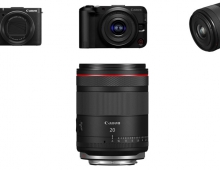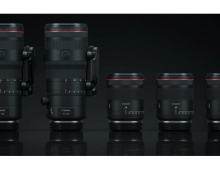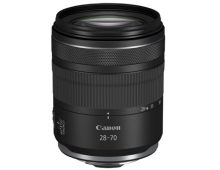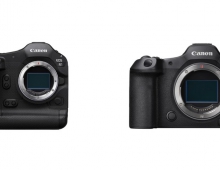
Canon to Buy Toshiba's Stake in Display Unit
Canon said it will buy out Toshiba's stake in their flat-panel display venture to resolve a patent-related dispute with Nano-Proprietary Inc. in the United States.
Canon will now own the unit that was set up in 2004 to develop a new type of flat-panels to challenge consumer electronics giants such as Samsung and Matsushita in the booming TV market.
The agreement comes amid a lawsuit filed by Austin, Texas-based Nano-Proprietary against Canon that the patent license agreement signed in 1999 between the two companies over technology used in the panels doesn't cover the joint venture, SED Ltd., in which Toshiba owns a 50 percent stake.
Canon, the world's biggest maker of copiers and digital cameras, had set its new display business as a main driver of future growth as it expects cooling demand and price declines in its other core products.
The surface-conduction electron-emitter display (SED) TVs, which are said to be brighter and consume less energy than the current types of flat TVs like liquid crystal displays (LCDs) and plasma, are still scheduled for sale in Japan in the fourth quarter as planned, Canon said on Friday.
Even without the stake in the display venture, Toshiba will buy some SED displays from Canon and sell the TVs under the Toshiba brand, while Canon will separately market their own TVs.
However, the plan to build a 180 billion yen ($1.49 billion) factory this year at a site owned by Toshiba in western Japan to mass produce the panels is under review, the companies said.
Canon said it will manufacture the display on a smaller scale at its own plant for the Japan launch.
Tokyo-based Canon and Toshiba last March delayed the launch of SED TVs by more than a year to the last quarter of 2007 to improve cost competitiveness and combat steep price erosion.
However, some analysts said the change in plan may be positive for Canon.
The companies declined to provide financial details of the transaction, which is scheduled for completion on January 29.
"The decision was reached following discussions between Canon and Toshiba based on the assumption of prolonged litigation pending against Canon in the United States with respect to SED," the companies said in a press release.
Last month, the companies had scrapped their plan to display its 55-inch SED TV at the Consumer Electronics Show, one of the biggest industry events taking place in Las Vegas this week.
The agreement comes amid a lawsuit filed by Austin, Texas-based Nano-Proprietary against Canon that the patent license agreement signed in 1999 between the two companies over technology used in the panels doesn't cover the joint venture, SED Ltd., in which Toshiba owns a 50 percent stake.
Canon, the world's biggest maker of copiers and digital cameras, had set its new display business as a main driver of future growth as it expects cooling demand and price declines in its other core products.
The surface-conduction electron-emitter display (SED) TVs, which are said to be brighter and consume less energy than the current types of flat TVs like liquid crystal displays (LCDs) and plasma, are still scheduled for sale in Japan in the fourth quarter as planned, Canon said on Friday.
Even without the stake in the display venture, Toshiba will buy some SED displays from Canon and sell the TVs under the Toshiba brand, while Canon will separately market their own TVs.
However, the plan to build a 180 billion yen ($1.49 billion) factory this year at a site owned by Toshiba in western Japan to mass produce the panels is under review, the companies said.
Canon said it will manufacture the display on a smaller scale at its own plant for the Japan launch.
Tokyo-based Canon and Toshiba last March delayed the launch of SED TVs by more than a year to the last quarter of 2007 to improve cost competitiveness and combat steep price erosion.
However, some analysts said the change in plan may be positive for Canon.
The companies declined to provide financial details of the transaction, which is scheduled for completion on January 29.
"The decision was reached following discussions between Canon and Toshiba based on the assumption of prolonged litigation pending against Canon in the United States with respect to SED," the companies said in a press release.
Last month, the companies had scrapped their plan to display its 55-inch SED TV at the Consumer Electronics Show, one of the biggest industry events taking place in Las Vegas this week.





















